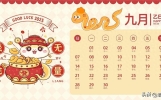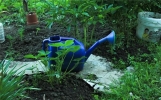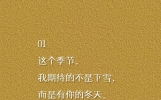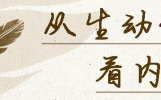一、词尾是des的单词?
①
以des结尾的单词有minutes,brides,rides,hides,modes,mutes等等
一般以des结尾的单词有两种,
①动词第三人称单数形式
如:hides 隐藏
Embarrassed, he hides his new job from his friends and family, but over time, he learns to appreciate his role.
最初他倍感尴尬,向家人和朋友隐瞒他的新工作,但随着时间推移他学会去理解认可自己的社会角色。
②名词复数形式
如:minutes 分钟,会议记录
This could be anything from tidying up digital files, to working on reports, minutes, performance assessments, and accounting.
琐事既可以是整理电子文档,也可以是处理报告、会议记录、业绩评估或会计核算。
②
des不是缩写,是阳性、中性单数定冠词的第二格形式。
名词的第二格一般放在另一名词后作这个名词的定语,一般表示所属关系,有时也可以放在某些动词或介词后面作第二格宾语,提问时要用wessen。
定冠词和不定冠词的单数第二格,阳性、中性分别是des和eines,阴性单数是der和einer。定冠词复数第二格为der,不定冠词复数形式不存在。
单音节的阳、中性名词单数第二格,加词尾-s或-es,如:
des Tages
des Buches
des Computers
des Kindes
弱变化的阳性名词第二格,和第三、四格一样,要加词尾-en,如:
des Menschen
des Studenten
des Herrn
des Namens
des Herzens
例如:
Die Grammatik ist das Skelett der Sprache.
Er ist nicht meiner Meinung.
Eines Abends kam er zu mir.
Er bedarf meiner Hilfe.
Das passierte innerhalb zweier Jahre
二、英语以UP和ON结尾的短语有什么?
pick up拾起;
tie up捆紧;
get it up ones nose发怒,入迷;
laugh up ones sleeve窃笑 扩展资料
run up沿…跑;
walk up沿着…走;
up with拿起,举起;拥护;
up in[口]精通;
up and down上上下下;到处;
up on熟悉;精通;
up until一直到…为止
很多take up 占据take on 担任工作pick up 捡起;收拾,整理give up 放弃get on上车,穿上,年纪增长get up起床base on以......(为)根据live on继续存在;靠......生活knock on敲(门、窗)carry on 坚持下去;继续下去clean up清除;收拾干净come on来吧;跟着来;赶快eat up吃光;吃完go on 继续hurry up 赶快look up 向上看;抬头看put up挂起;举起try on 试穿(衣服、鞋等);试戴(帽子等)wake up 醒来
三、tidy用英文怎么说?
tidy 英 [ˈtaɪdi] 美 [ˈtaɪdi] adj. 整洁的,整齐的; (数量) 相当大的; 相当好的; 健康的; n. 盛零碎物品的容器; 椅子的背罩; vt. 使整洁; 弄整齐; 使有条理; 整理,收拾; [例句]Having a tidy desk can seem impossible if you have a busy, demanding job.如果工作忙、难度大,要想保持桌面整洁似乎不太可能。
四、spend time alone是什么意思?
spend time alone的中文翻译
spend time alone
独自消磨时光
双语例句
1
I kick up a fuss if my wife wants to spend time alone.
如果妻子想要单独呆一会儿我就会大发牢骚。
2
When I spend time alone I am able to relax and clear my mind.
当我花时间独处时,我能放松心情和整理我的思绪。
五、“打扫卫生”用英语怎么说?
打扫房间的英文:clean the room 打扫卫生的英文:do some cleaningclean读法英 [kliːn] 美 [kliːn]
1、adj.洁净的;干净的;爱干净的;爱整洁的;无有害物的;无污染的2、v.除去…
的灰尘;使…
干净;打扫;变干净;(烹调前给鱼、鸡等)清除内脏3、adv.(行动)彻底地,完全地4、n.打扫;清扫短语:1、clean sheet 不失球;清白的历史2、clean surface 洁净表面;清洁表面3、clean on board 清洁装运提单4、clean sweep 全胜;快速整理扩展资料词语用法:1、clean用作动词的基本意思是“使清洁; 变干净”,指通过洗、扫、掸等手段以清除异物,引申可作“清扫”解。
2、clean可用作及物动词,也可用作不及物动词。用作及物动词时,跟名词或代词作宾语;用作不及物动词时,意思是“洗净,打扫干净”,有时主动形式可表示被动意义。
3、clean of表示“洗去…
”; 接out,可以表示“打垮”,为美国俚语; 接up作“收拾整洁; 打扫,整顿”解,后面可以接要被清扫掉的物体,也可以接要使之干净、整洁的对象,在口语中,可以表示“发财”。
词义辨析:scrub, clear, clean, dust这组词都有“使干净”的意思,其区别是:1、scrub 指用硬刷、肥皂或水用力地擦洗某物。
2、clear 指清除不要的东西。
3、clean 是这些动词中最常用的词,指将某物或某处的污物等清除掉,弄干净。
4、dust 指将积落在物体表面的尘土抹去、掸掉或擦去以保干净。
1、打扫卫生do some cleaning;Cleaning the office;cleanup
2、我在家打扫卫生I was home cleaning;I am at home cleaning
3、继续打扫卫生Continue cleaning;Continued clean up
造句:
让我们先打扫卫生吧
Let's clean up first
六、关于做家务的英语单词?
扫地sweep the floor拖地mop the floor吸尘vacuum整理房间tide up the room擦窗户clean the windows铺床make the bed换床单change the sheets洗衣服wash the clothes/do the laundry 叠衣服fold the clothes熨衣服iron煮饭cook the meals/do the cooking摆放餐具set the table擦桌子wipe off the table洗碗wash the dishes扔垃圾take out the rubbish/garbage浇花water the flowers/vegetables
































